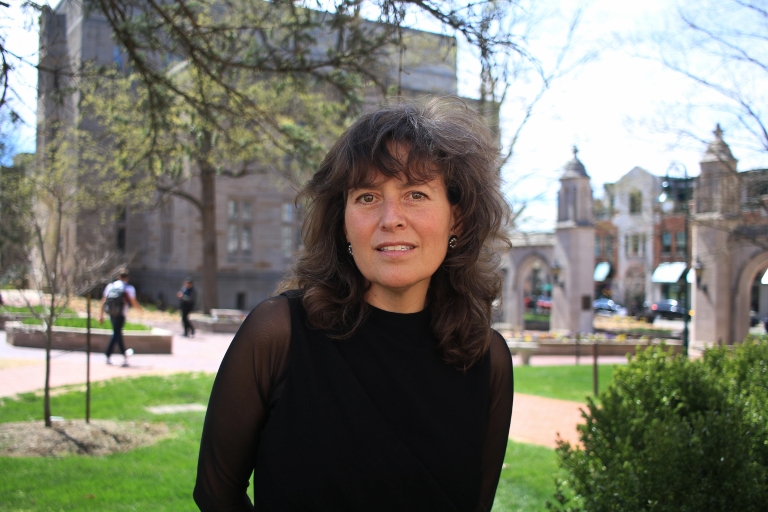The first presidential debate has come and gone, early voting is underway in many states, and the 2020 election is top of mind for most Americans and at the center of many conversations online. But the spread of false narratives about the election through social media poses a serious threat to American democracy. The Observatory on Social Media at Indiana University has a collection of tools and studies that aid in the fight against election manipulation and disinformation.

The observatory has launched the third iteration of BotSlayer, an application that scans social media in real time to detect evidence of automated Twitter accounts -- or "bots" -- pushing messages in a coordinated manner. Updates to the tool include better stability, a new alert system, an installer for Mac operating systems and several changes to the interface that make BotSlayer easier to use.
These improvements and new features are based on feedback from more than 500 beta testers, including major news organizations. The new version of BotSlayer has been released in time for journalists, researchers, civil society organizations and political groups to more easily monitor election manipulation attempts online as the race ramps up.
The tool, which launched in 2019, is free and open to the public. To further encourage public use of the tool, the observatory has developed a version already set up to track election-related Twitter activity. This allows those who don't have the time, resources or technological knowledge to set up their own tracking parameters to interact with it in the same way that people use the observatory's other popular web-based tools, Hoaxy and Botometer.
"As social media are weaponized to amplify disinformation, suppress voting and pollute the information ecosystem, we hope our tools can help raise awareness among citizens and decrease their vulnerability," said Filippo Menczer, Distinguished Professor of Informatics and director of the Observatory on Social Media.
Using network analytics and artificial intelligence methods incorporated in these tools, members of the observatory have helped journalists analyze data from their reporting on misinformation and online election manipulation. Recently, Menczer and Ph.D. student Pik-Mai Hui analyzed information that Washington Post reporter Isaac Stanley-Becker had gathered for an investigation into a network of accounts run by teenagers in Phoenix. The teenagers were coordinated and paid by an affiliate of conservative youth organization Turning Point USA.

To conduct the analysis, Menczer and Hui started from a set of accounts provided to them by the paper and discovered 35 Twitter accounts (two of which had already been banned) that had posted 4,401 tweets with identical content. Most of the accounts posting this content had been created recently. Identical messages, including those amplifying false narratives, appeared in dozens of tweets.
A total of 467 messages had been posted in at least two tweets, and 188 messages were posted by at least two accounts. About 95 percent of the tweets were replies to posts from media organizations. This mirrors a targeting strategy used in the 2016 election, according to research about bot-amplification of low-credibility information previously conducted by the observatory.
The observatory also continues to track widely circulated controversial narratives throughout the 2020 election. The goal is to assess the public's awareness of them, the extent to which they are believed and whether someone's political leaning is related to their vulnerability to these narratives. In a recent survey, the observatory found that large segments of the population have encountered unsupported narratives through media exposure and find them plausible.
"More than 45 percent of survey respondents thought that mail-in ballots cause voter fraud, and a similar percentage believe that Joe Biden is cognitively compromised," said Betsi Grabe, professor in The Media School and associate director of the observatory. "Of particular concern is that the Department of Homeland Security found that Russia is amplifying false narratives about voter fraud in the upcoming presidential election and seeding disinformation about former Vice President Joe Biden's mental health."
The study was conducted in late August and early September. The research team will run five more surveys during the course of the fall election season.
The Observatory on Social Media is a joint project of the IU Network Science Institute; the Center for Complex Networks and Systems Research at IU's Luddy School of Informatics, Computing and Engineering; and The Media School at Indiana University, with support from the Office of the Vice Provost for Research at IU Bloomington. The Observatory's work is funded in part through a grant from the John S. and James L. Knight Foundation, which has committed $50 million to support new research on the internet's impact on our democracy.
About IU Research
IU's world-class researchers have driven innovation and creative initiatives that matter for 200 years. From curing testicular cancer to collaborating with NASA to search for life on Mars, IU has earned its reputation as a world-class research institution. Supported by $854 million last year from our partners, IU researchers are building collaborations and uncovering new solutions that improve lives in Indiana and around the globe.






